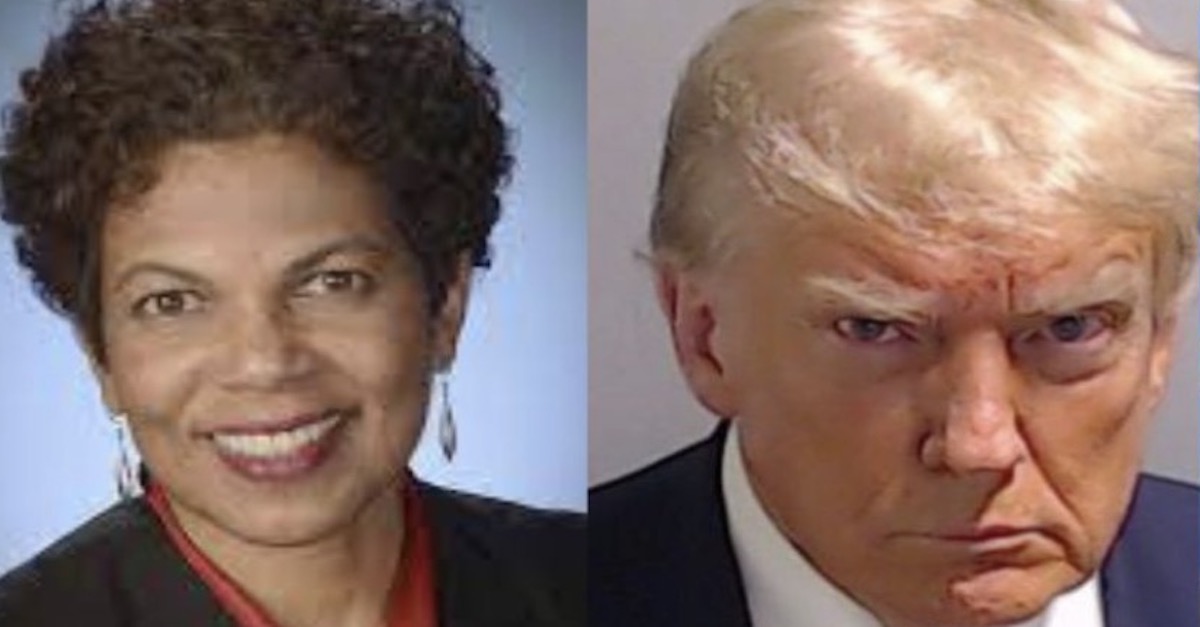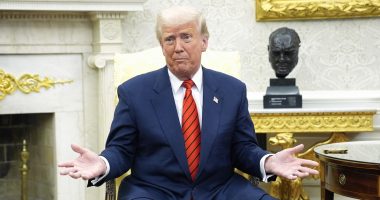
Tanya Chutkan (U.S. District Court photo); booking photo of Donald J. Trump, via Fulton County (Ga.)
The judge overseeing former president Donald Trump’s federal election interference prosecution in Washington, D.C., will not step aside.
In an order released Wednesday, U.S. District Judge Tanya S. Chutkan denied the 45th president’s recently filed recusal request.
In her 20-page order, Chutkan said that prior statements she made “during the sentencing hearings of two individuals convicted for their conduct on January 6, 2021,” did not rise to the level of conduct that would disqualify a judge from overseeing a case.
In their motion under the federal recusal statute, Trump’s attorneys John Lauro and Todd Blanche complained about comments Chutkan made in December 2021 and October 2022 when sentencing Jan. 6 defendants Robert Palmer and Christine Priola. The former president’s legal team argued the judge’s comments reflected bias when she suggested those who planned the events of Jan. 6, not just those who took part in the riot, should be charged as well.
Special counsel Jack Smith responded by alleging that the statements in question were cherry-picked and taken out of context.
Read Related Also: Judge refuses to move Mark Meadows RICO charges in Trump case to federal court, saying he ‘failed’ to reach ‘quite low’ bar for removal
“Judge Chutkan’s statements point to the unmistakable conclusion that the appearance of prejudgment will infect every aspect of this case and cause the public to rightly question the very legitimacy of these historic proceedings,” Trump’s lawyers wrote in a follow-up motion filed in the D.C. District Court last week.
In her Wednesday order, the Barack Obama-appointed judge, who was unanimously confirmed to the bench, and later, randomly assigned to the case, resisted the notion that her comments reflected any sort of bias. Rather, Chutkan found, her comments were direct responses to comments made by Palmer and Priola to the court – and therefore, she said, her own responses were comments she had to make.
“[T]he court’s statements reflect its obligation to acknowledge Palmer and Priola’s mitigation arguments on the record,” Chutkan writes. “[B]oth defendants sought a lower sentence on the grounds that their culpability for the January 6 attack was lesser than that of others whom they considered to be the attack’s instigators, and so it would be unfair for them to receive a full sentence while those other people were not prosecuted. The court was legally bound to not only privately consider those arguments, but also to publicly assess them.”
The court’s full order is available below:
Brandi Buchman and Jerry Lambe contributed to this report.
Have a tip we should know? [email protected]







